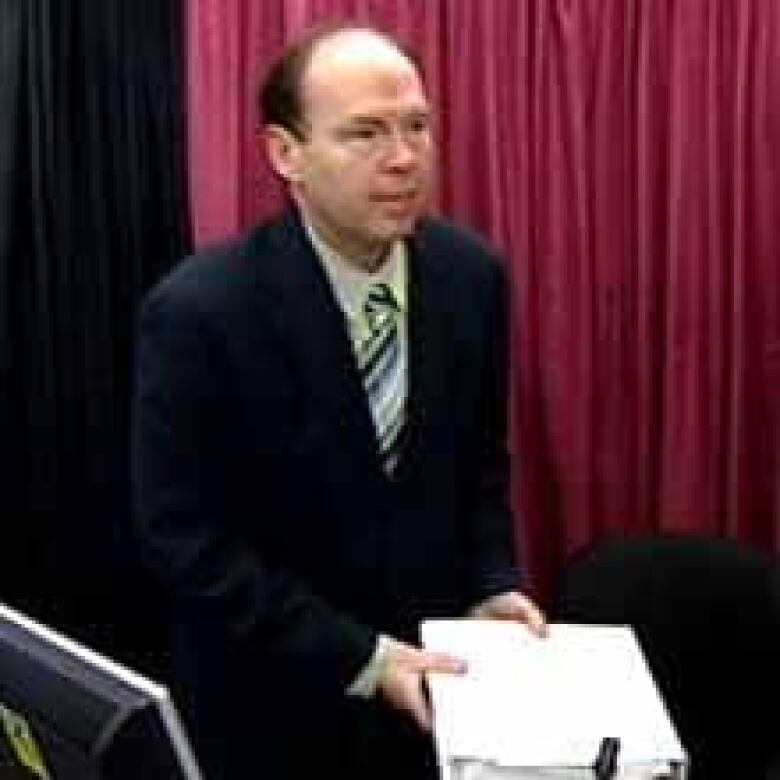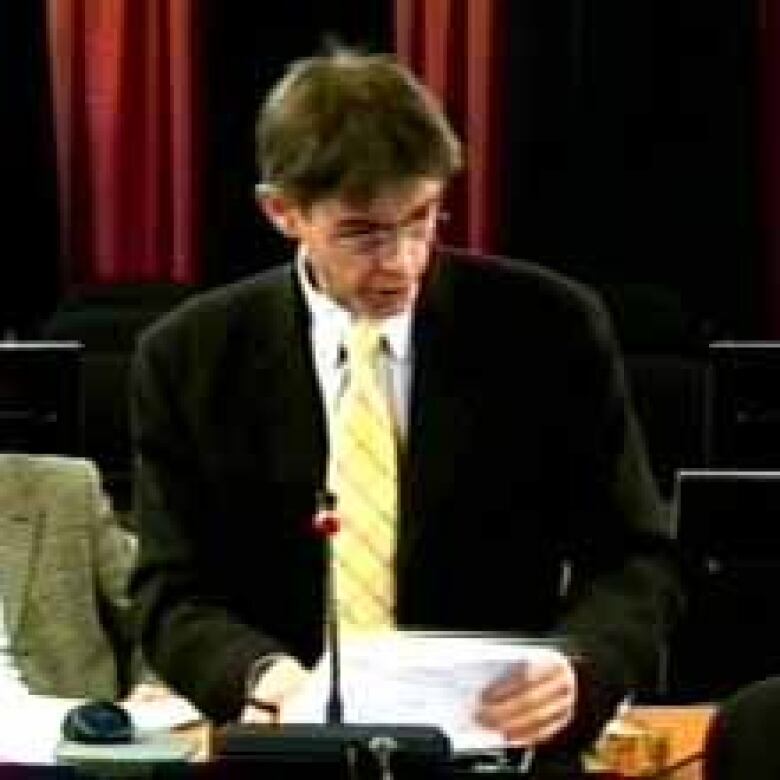New law needed to protect patients, cancer inquiry told
Patient protection 'overridden' during confusion: former deputy minister

Newfoundland and Labrador needs new legislation to prevent future health-care mistakes from being kept secret, a former civil servant says.
John Abbott, who resigned as deputy minister of health in May 2007, told the Cameron inquiry that the province needs an independent agency that would be alerted to serious health-care mistakes and have the legal authority to deal with them properly.
"So that when we have adverse events certainly adverse events affecting more than one patient there would have to be immediate disclosure to the patient and possibly to the public," Abbott told Justice Margaret Cameron on Wednesday, concluding a week of testimony.
Abbott had maintainedin his testimony that during the time he was the top health bureaucrat in the Newfoundland and Labrador government,he had feltit was Eastern Health's responsibility and not that of government to solve problems with flawed hormone receptor testing.
The inquiry has been told that Eastern Health managers could not agree over a two-year period what to tell breast cancer patients and the public about erroneous breast cancer tests, which may have steered hundreds of patients awayfrom helpful treatment.
Inquiry called after full scope of mistakes exposed
The provincial government called the inquiry after learning that Eastern Health managers had played down the full scope of the cancer test mistakes.
Abbott told the inquiry Wednesday, though, that he now feels that patients would be better served by an agency independent of regional authorities and government bureaucrats.
Abbott said he accepted what Eastern Health told him between 2005 and 2007, and assumed that whatever decisions were being made were done in the best interests of patients.

"I think what happened here is that that's where we started. But over time, the patient interest got overridden by other factors and considerations," Abbott told Justice Margaret Cameron.
"We really need, at any point, to make sure that the patient interest [is] clearly addressed first and foremost."
Abbott recommended that the inquiry push for change to ensure that mistakes over disclosure and communication never happen again. Abbott described during his testimony how politics and damage control came to play large parts in the issue.
"My biggest worry here would be [that] we come up with some solutions here, but if at the end of the day, there's a choice that a minister of the Crown can direct whether or not there's patient disclosure or not, or public reporting or not, on a significant adverse event, that the pressure to not do it at some single point in time is real," Abbott said.
Abbott also said a better way must be found to ensure that problems, like the ones that troubled Eastern Health's pathology lab, are dealt with before they pose a threat to public safety.
"There are a number of states in the United States that have legislation that addresses reporting on adverse events," Abbott said. "I think we need to move there and move there quickly."
Inquiry co-counsel Bern Coffey challenged Abbott on his testimony, and noted that some of the measures he called for already exist. Coffey said under current access to information legislation, organizations like Eastern Health already have a responsibility to disclose information if it is in the public interest.
Abbott said that issue never came up during his tenure.
Abbott resigned his post shortly after the issue erupted in the legislature, and after he was asked to accept a transfer to another department. He has resumed work as a health-policy consultant.












_(720p).jpg)


 OFFICIAL HD MUSIC VIDEO.jpg)
.jpg)



























































































